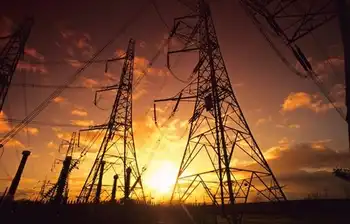Massachusetts stirs controversy with solar demand charge, TOU pricing cut

CSA Z463 Electrical Maintenance -
Our customized live online or in‑person group training can be delivered to your staff at your location.

- Live Online
- 6 hours Instructor-led
- Group Training Available
Massachusetts Solar Net Metering faces new demand charges and elimination of residential time-of-use rates under an MDPU order, as Eversource cites grid cost fairness while clean energy advocates warn of impacts on distributed solar growth.
Key Points
Policy letting solar customers net out usage with exports; MDPU now adds demand charges and ends TOU rates.
✅ New residential solar demand charges start Dec 31, 2018.
✅ Optional residential TOU rates eliminated by MDPU order.
✅ Eversource cites grid cost fairness; advocates warn slower solar.
A recent Massachusetts Department of Public Utilities' rate case order changes the way solar net metering works and eliminates optional residential time-of-use rates, stirring controversy between clean energy advocates and utility Eversource and potential consumer backlash over rate design.
"There is a lot of room to talk about what net-energy metering should look like, but a demand charge is an unfair way to charge customers," Mark LeBel, staff attorney at non-profit clean energy advocacy organization Acadia Center, said in a Tuesday phone call. Acadia Center is an intervenor in the rate case and opposed the changes.
The Friday MDPU order implements demand charges for new residential solar projects starting on December 31, 2018. Such charges are based on the highest peak hourly consumption over the course of a month, regardless of what time the power is consumed.
Eversource contends the demand charge will more fairly distribute the costs of maintaining the local power grid, echoing minimum charge proposals aimed at low-usage customers. Net metering is often criticized for not evenly distributing those costs, which are effectively subsidized by non-net-metered customers.
"What the demand charge will do is eliminate, to the extent possible, the unfair cross subsidization by non-net-metered customers that currently exists with rates that only have kilowatt-hour charges and no kilowatt demand, Mike Durand, Eversource spokesman, said in a Tuesday email.
"For net metered facilities that use little kilowatt-hours, a demand charge is a way to charge them for their fair share of the cost of the significant maintenance and upgrade work we do on the local grid every day," Durand said. "Currently, their neighbors are paying more than their share of those costs."
It will not affect existing facilities, Durand said, only those installed after December 31, 2018.
Solar advocates are not enthusiastic about the change and see it slowing the growth of solar power, particularly residential rooftop solar, in the state.
"This is a terrible outcome for the future of solar in Massachusetts," Nathan Phelps, program manager of distributed generation and regulatory policy at solar power advocacy group Vote Solar, said in a Tuesday phone call.
"It's very inconsistent with DPU precedent and numerous pieces of legislation passed in the last 10 years," Phelps said. "The commonwealth has passed several pieces of legislation that are supportive of renewable energy and solar power. I don't know what the DPU was thinking."
TIME-OF-USE PRICING ELIMINATED
It does not matter when during the month peak demand occurs -- which could be during the week in the evening -- customers will be charged the same as they would on a hot summer day, LeBel said. Because an individual customer's peak usage does not necessarily correspond to peak demand across the utility's system, consumers are not being provided incentives to reduce energy usage in a way that could benefit the power system, Acadia Center said in a Tuesday statement.
However, Eversource maintains that residential customer distribution peaks based on customer load profiles do not align with basic service peak periods, which are based on Independent System Operator New England's peaks that reflect market-based pricing, even as a Connecticut market overhaul advances in the region, according to the MDPU order.
"The residential Time of Use rates we're eliminating are obsolete, having been designed decades ago when we were responsible for both the generation and the delivery of electricity," Eversource's Durand said.
"We are no longer in the generation business, having divested of our generation assets in Massachusetts in compliance with the law that restructured of our industry back in the late 1990s. Time Varying pricing is best used with generation rates, where the price for electricity changes based on time of day and electricity demand and can significantly alter electric bills for households," he said.
Additionally, only 0.02% of residential customers take service on Eversource's TOU rates and it would be difficult for residential customers to avoid peak period rates because they do not have the ability to shift or reduce load, according to the order.
"The Department allowed the Companies' proposal to eliminate their optional residential TOU rates in order to consolidate and align their residential rates and tariffs to better achieve the rate structure goal of simplicity," the MDPU said in the order.











